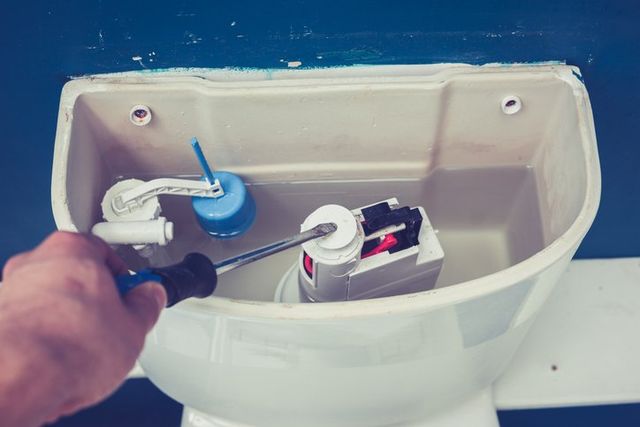Ways to Address the Common Water Heater Emergency Challenges
Ways to Address the Common Water Heater Emergency Challenges
Blog Article
We have noticed the article on The Importance of Water Heater Maintenance listed below on the web and thought it made perfect sense to relate it with you on my blog.

A hot water heater is among one of the most crucial standard appliances that can be discovered in a residence. With water heaters, you don't require to go through the stress and anxiety of heating water manually whenever there is a demand to wash, wash, or the recipes. However, there is always a possibility that your water heater would act up just like a lot of mechanical devices.
It is necessary to keep in mind any type of little malfunction and tackle it quickly prior to points get out of hand. Most times, your hot water heater starts to malfunction when there is a build-up of debris as a result of continuous usage. As a safety measure, periodic flushing of your hot water heater is advised to avoid sediment build-up and also stop practical failure.
Usual hot water heater emergency situations as well as just how to handle them
Dripping hot water heater container.
In this circumstance, you ought to turn off your water heating system, enable it to cool down, and carefully look for the resource of the problem. At times, all you require to do is to tighten a couple of screws or pipe links in cases of small leaks. If this does not function as well as the leakage persists, you may require to employ the solutions of a technician for a suitable substitute.
Fluctuating water temperature.
Your hot water heater can begin producing water of different temperature levels usually ice cold or scalding hot. In this situation, the first thing you do is to ensure that the temperature is readied to the preferred degree. If after doing this, the water temperature level maintains altering during showers or various other activities, you could have a defective thermostat. There might be a need to change either the thermostat or the home heating unit of your hot water heater.
Too little hot water
It might be that the water heater can't sustain the warm water need for your apartment. You might update your water heating unit to one with a larger capability.
Discolored or smelly water
When this occurs, you need to recognize if the concern is from the water or the container resource. If there is no funny odor when you run chilly water, then you are particular that it is your water heating system that is damaged. The stinky water can be triggered by corrosion or the buildup of germs or debris in the water heating unit storage tank.
Conclusion
Some home owners overlook little caution and minor faults in their hot water heater unit. This only results in additional damages as well as a feasible total malfunction of your home appliance. You should manage your water heater faults as soon as they come up to avoid more expenditures and also unneeded emergency troubles.
With water heating units, you don't require to go with the anxiety of heating water by hand every time there is a need to take a bathroom, do the laundry, or the meals. Your water heating system can start creating water of different temperature levels generally ice hot or cold hot. It might be that the water heating system can not support the warm water demand for your house. If there is no amusing smell when you run cool water, then you are specific that it is your water heating system that is malfunctioning. The stinky water can be created by corrosion or the build-up of bacteria or sediments in the water heating system tank.
Common Water Heater Issues and What You Should Do
What Type of Water Heater Do You Have?
Before we begin it’s first important that you identify the type of water heater you have on your property. There are two main types of water heaters out there: conventional and high efficiency.
Both of these types of products typically use either gas or electricity to heat power. There are also solar water heaters that use a thermal collector on the roof or yard to heat the water.
While these models are not as common, they can cut heating costs in half. In this article, we will focus on conventional and high efficiency.
How Do My Electric and Gas Water Heater Work?
Though they look similar, electric and gas water heaters work very differently. It’s important to know their basic function because often problems can be specific to the heating source.
In the electric model, a thermostat on the side of the machine detects the temperature of the water in the tank. When the temperature needs to rise electricity flows to a heating element suspended in the water.
Gas models also use a thermostat device — typically with a mercury sensor at the tip and an additional sensor called a thermocouple. The thermocouple detects whether the pilot light is on and controls the flow of gas.
When the thermostat drops below the appropriate level gas is released which becomes ignited by the pilot light. The flame heats the bottom of the water tank which causes hot water to rise and cold water to drop.
This natural circulation continues until the water reaches the desired temperature. Then, the thermostat triggers the gas control valve to shut off the flow of gas.
What Are the Most Common Issues and How Do You Fix Them?
https://happyhiller.com/blog/common-water-heater-issues-and-what-you-should-do/

As a serious person who reads about Warning Signs You Need Water Heater Repairs, I figured sharing that topic was essential. Enjoyed our blog entry? Please share it. Help someone else locate it. We enjoy reading our article about Is Your Water Heater Leaking?.
Secure efficient service. Report this page